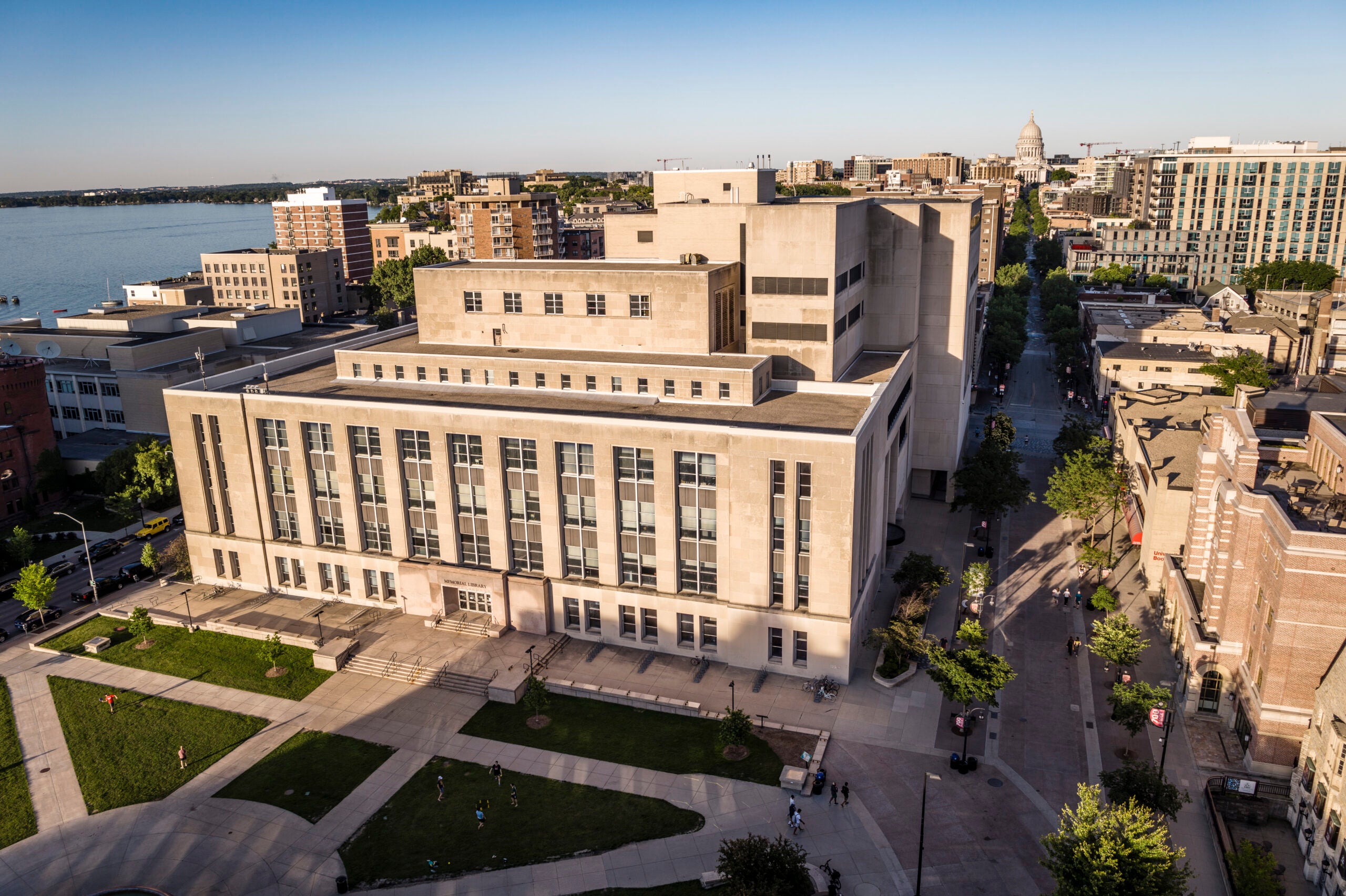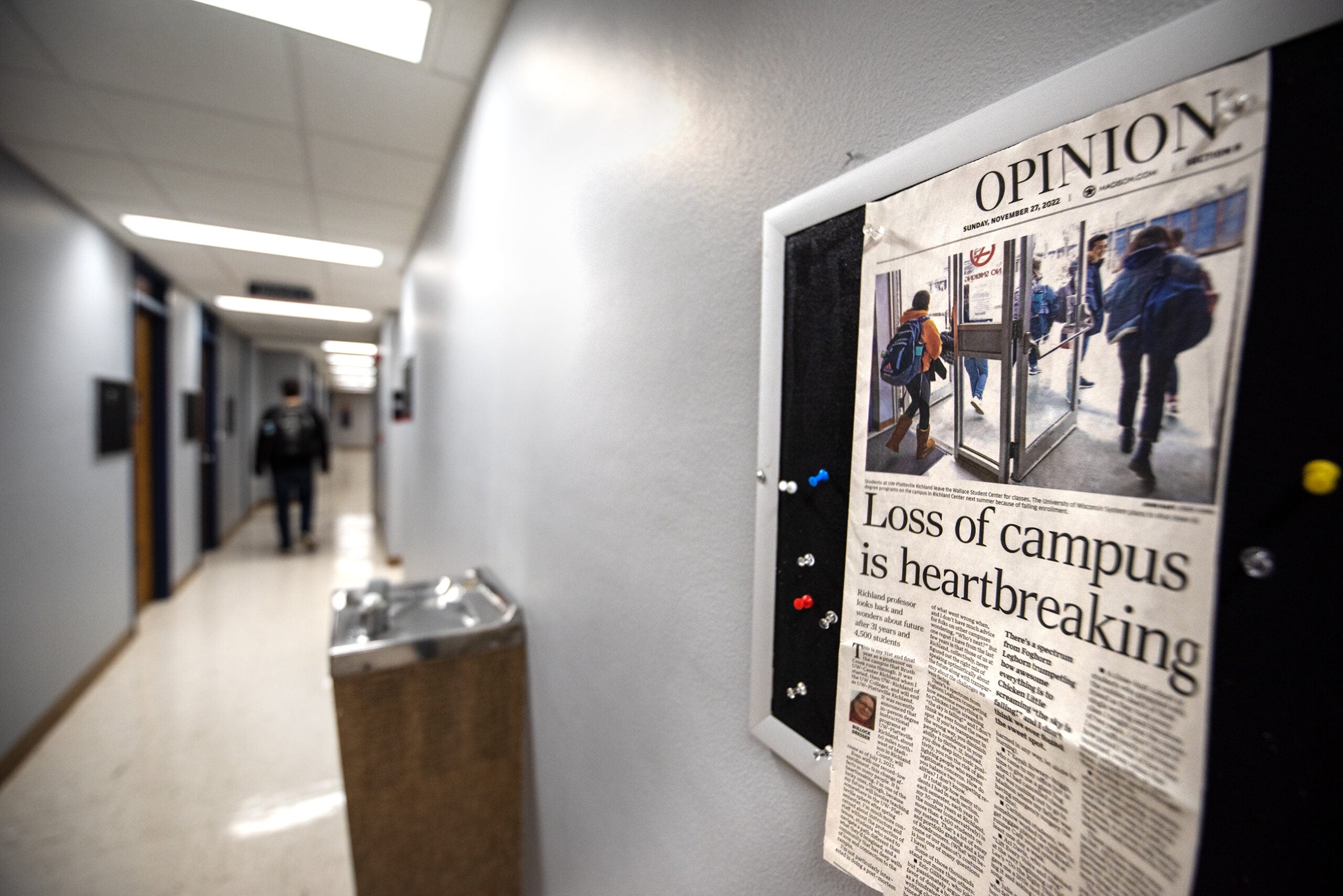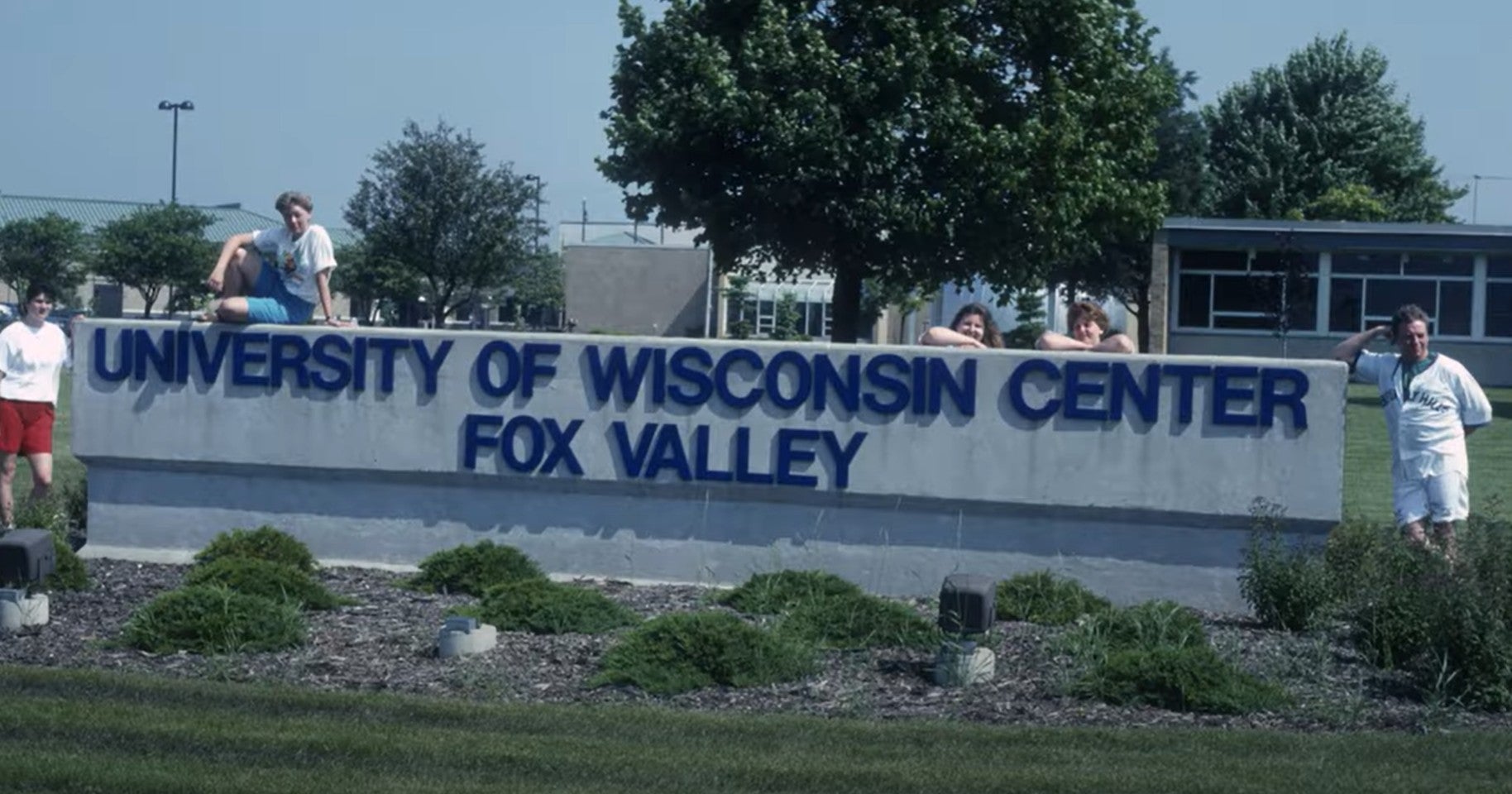Marquette University will cut 225 faculty and staff positions by the end of June 2022, according to a recently approved campus budget. Employees say cuts of that level may impact the quality of education at the Milwaukee-based institution and goes against its Jesuit mission.
Talks of budget cuts aren’t new at Marquette University. Assistant Professor of Theology Kate Ward said they’ve been hearing for the past year that 25 percent of the university’s academic expenses need to be cut.
“So, from a mission perspective, we are a university, right?” Ward said. “Our job is to educate students. Academics is at the heart of that.”
News with a little more humanity
WPR’s “Wisconsin Today” newsletter keeps you connected to the state you love without feeling overwhelmed. No paywall. No agenda. No corporate filter.
On Dec. 7, Ward and other teaching staff at Marquette got their first look at the university’s 2022 budget, which was approved by its board of trustees during its December meeting. It states that Marquette’s “overall compensation” will decrease by $34.2 million in 2022 by cutting 225 out of 2,811 faculty and staff. At the same time, the document mentions a $12.1 million surplus the document says “will provide room for investing in projects of strategic priority.”
Ward said through “coffee meetings” between academic department staff and members of campus administration, staff have been told employee cuts would start in January 2021, which she worries could impact students who are already enrolled and need specific classes to graduate on time.
In response to a WPR request for comment on the Marquette University budget, campus spokesperson Kevin Conway said in an email that Marquette has been discussing “smart investments in new growth and innovation strategies” as it plans for a successful future, while maintaining a commitment to providing students with a “transformative education.”
“For the past several years, prior to the pandemic, the university leadership team has been proactively planning and preparing to address higher education headwinds and maintain our Catholic and Jesuit identity in the face of our challenges,” Conway wrote.
A university economic planning webpage elaborates on those challenges, which include projected declines in the number of college-age students by 2026. The page states that temporary cost-cutting measures like the suspension of merit pay raises, university contributions to employee retirement plans, pay cuts for administrators and discretionary spending cuts are not sustainable.
“We have to deal with the reality that we are facing,” says a quote on the webpage from Marquette President Michael Lovell. “And like the original Jesuits, who walked with one foot raised, we have to adapt for a successful future.”
But Doug Smith, an assistant professor in Marquette’s College of Business Administration, said the current budget doesn’t explain what portion of the planned 225 staff reductions are in response to the COVID-19 pandemic and which are due to projected declines.
Smith, who is also president of the Marquette University chapter of the advocacy group American Association of University Professors (AAUP), said the economic planning process has been driven by administration, which created “working groups” aimed at getting feedback on potential cost saving measures.
“Some of the work groups have said they are not getting all the information that they’ve asked for so that they can make smart recommendations about how we might reduce the budget,” said Smith.
He said it must be recognized that part of the reason Marquette University is having to discuss staff reductions is because the campus “hasn’t planned very well for disruptive events in the past.” Smith said the $12.1 million surplus and lack of specifics about how it will be spent is a point of frustration among faculty and staff that could lose their jobs.
“You don’t cut spending by $12 million, so you can create a rainy day fund when you’re already in the middle of a flood,” Smith said.
The Marquette chapter of the AAUP has submitted a resolution to the Marquette University Academic Senate that calls for a suspension of the campus’ economic planning process and substitute it with a more cohesive process “that conforms to principles of shared governance.”
Visiting Assistant Theology Professor Chris Gooding said there’s an expectation that a significant portion of the staff reductions will come from non-tenured instructors in liberal arts programs.
“So, even if you’re working on a tenure track, if you don’t currently have tenure, there’s some worry about job stability there, especially since there seem to be certain programs that are getting heavily targeted for cuts,” Gooding said.
Gooding added the current arguments from administration for cutting staff — particularly those addressing a decline in college-age students — don’t hold up because they don’t take into account growth among the university’s Latinx population.
In 2016, Marquette University announced an initiative to become designated as a Hispanic-Serving Institution by increasing Latinx enrollment to 25 percent of the overall student body. In late September, the university announced fall 2020 enrollment data that showed while the campus saw a 16.5 percent decline in new freshman compared to 2019. The data also showed that 26 percent of enrollees were students of color, which it said was the “most diverse student population in Marquette’s history.”
In an open letter to the campus community, Marquette Associate Law Professor and Rector of the Jesuit Community Gregory O’Mara wrote that “Marquette is not a business; rather it is an apostolate of the Society of Jesus.”
O’Mara continued, saying that the university “cannot simply figure out how much money it has and then decide where to spend it.” Instead, he said the administration must articulate its core values and use them as a guide to produce graduates that “have an appreciation of physical, social and spiritual reality.”
“And undergirding all of these goals is a robust commitment to each student’s acquiring rigorous analytical skills and the ability to communicate the findings of their investigations in clear, concise, and precise prose,” wrote O’Mara. “To this end, a solid grounding in the humanities is indispensable.”
Another open letter, written by faculty from Marquette science, technology, engineering and math programs said that cutting humanities and social science staff “at this time of change is short sighted.”
“We the faculty of STEM disciplines stand in solidarity and respect for our colleagues in the humanities and social sciences,” said the letter. “We look forward to continuing our work together to serve our students and to help Marquette build on its strengths to emerge from this current crisis as a stronger and more unified campus.”
Editor’s note: A previous version of this story said the $12.1 million surplus in Marquette’s budget would go toward 19 new positions in fields like health sciences and nursing. The story has been corrected to say that the surplus will instead be used for unspecified investments.
Wisconsin Public Radio, © Copyright 2025, Board of Regents of the University of Wisconsin System and Wisconsin Educational Communications Board.







